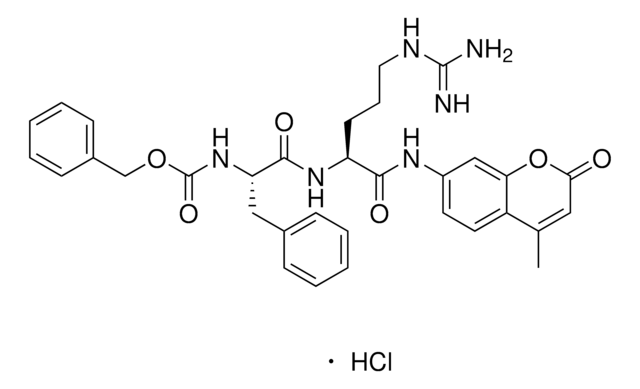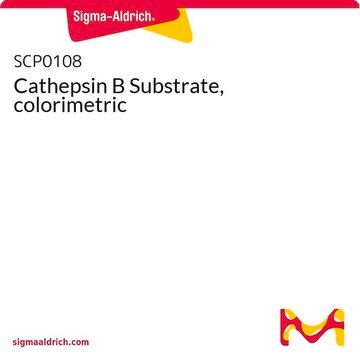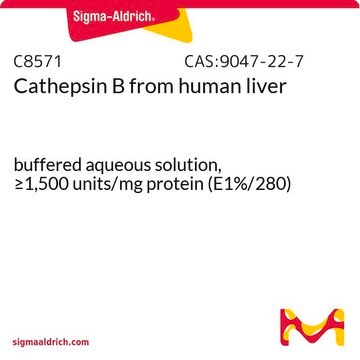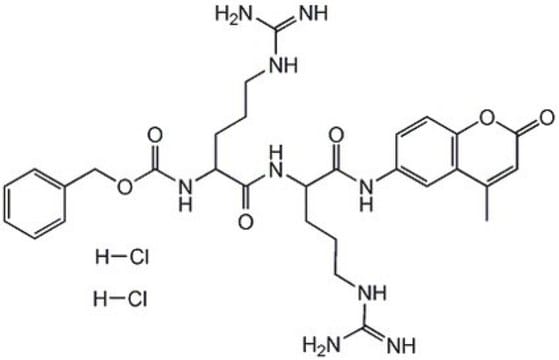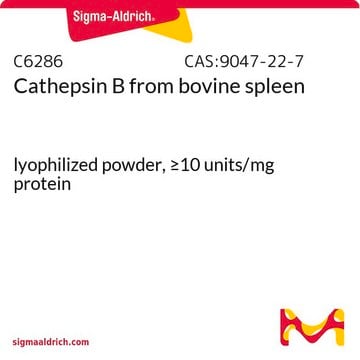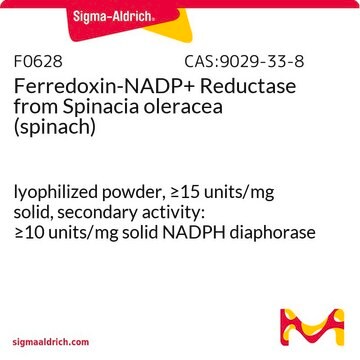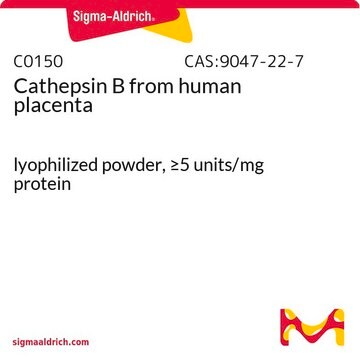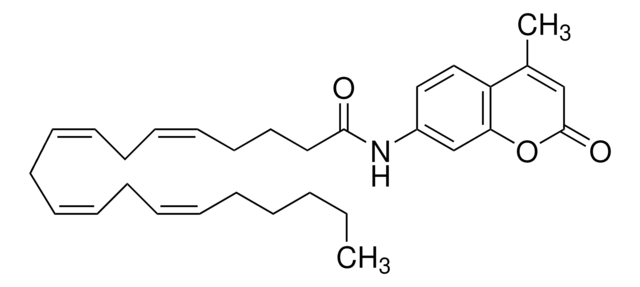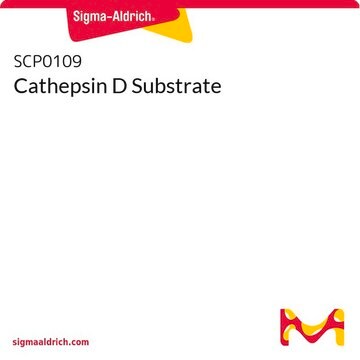C5429
Z-Arg-Arg-7-amido-4-methylcoumarin hydrochloride
Synonym(s):
Z-RR-AMC
About This Item
Recommended Products
form
powder
Quality Level
impurities
~4% isopropanol
storage temp.
−20°C
SMILES string
Cl.CC1=CC(=O)Oc2cc(NC(=O)C(CCCNC(N)=N)NC(=O)C(CCCNC(N)=N)NC(=O)OCc3ccccc3)ccc12
InChI
1S/C30H39N9O6.ClH/c1-18-15-25(40)45-24-16-20(11-12-21(18)24)37-26(41)22(9-5-13-35-28(31)32)38-27(42)23(10-6-14-36-29(33)34)39-30(43)44-17-19-7-3-2-4-8-19;/h2-4,7-8,11-12,15-16,22-23H,5-6,9-10,13-14,17H2,1H3,(H,37,41)(H,38,42)(H,39,43)(H4,31,32,35)(H4,33,34,36);1H
InChI key
HLSNWWKWVKPXKI-UHFFFAOYSA-N
Gene Information
human ... CTSB(1508)
mouse ... CTSB(13030)
rat ... CTSB(64529)
Amino Acid Sequence
Application
- as a cathepsin B substrate in zymography analysis of protease in feces extract.
- in cathepsin B activity assay.
- as a fluorogenic peptide substrate to determine the matrix metalloproteinase enzyme activity.
Substrates
Storage Class Code
11 - Combustible Solids
WGK
WGK 3
Flash Point(F)
Not applicable
Flash Point(C)
Not applicable
Personal Protective Equipment
Certificates of Analysis (COA)
Search for Certificates of Analysis (COA) by entering the products Lot/Batch Number. Lot and Batch Numbers can be found on a product’s label following the words ‘Lot’ or ‘Batch’.
Already Own This Product?
Find documentation for the products that you have recently purchased in the Document Library.
Customers Also Viewed
Articles
Cathepsin B is a lysosomal cysteine proteinase with broad specificity. This protocol uses Nα–CBZ–Arg–Arg–7–amido–4–methylcoumarin as the substrate for fluorometric detection of Cathepsin B activity.
Our team of scientists has experience in all areas of research including Life Science, Material Science, Chemical Synthesis, Chromatography, Analytical and many others.
Contact Technical Service